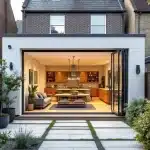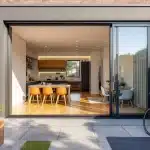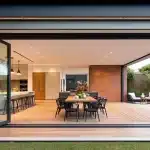Transforming Bathrooms and Kitchens in Melbourne
Kitchen and bathroom renovations in Melbourne can transform your home’s most important spaces into functional, modern areas that add significant value.
We at Cameron Construction understand that successful renovations require careful planning, smart design choices, and expert execution. The right approach turns outdated rooms into spaces you’ll love for years to come.
How Much Should You Budget for Your Renovation
Melbourne homeowners typically spend varying amounts for renovations, with kitchen and bathroom projects being the most popular choices. Over 30% of renovation budgets fall between $5,000-$15,000, though smart planning prevents the 20-30% budget overruns that plague most renovations. Successful clients allocate an additional 25% contingency fund and establish firm timelines upfront. Kitchen renovation costs typically range from $25,000 to $150,000 while full bathroom makeovers take 6-8 weeks (assuming no structural changes or permit delays).
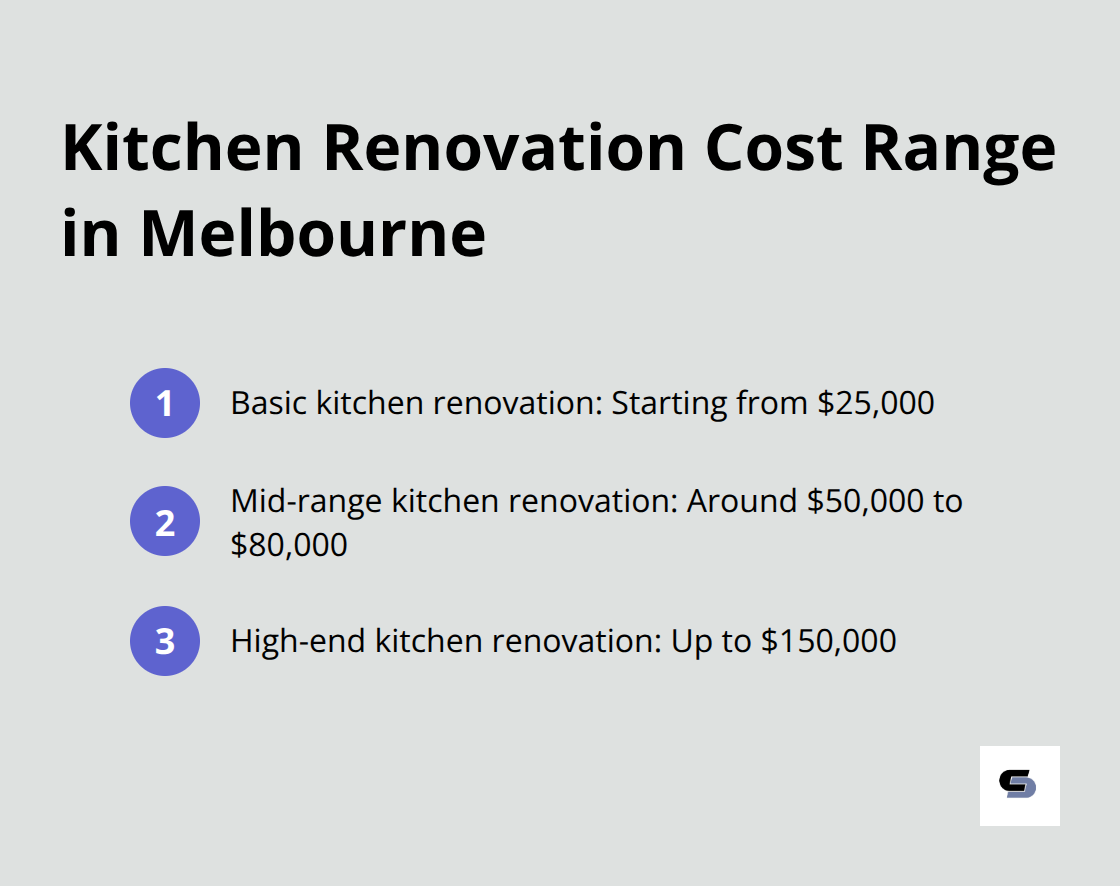
Melbourne Permit Requirements Matter
Most bathroom renovations require permits when you relocate plumbing or remove walls, with approval timelines that extend projects by 2-4 weeks. Kitchen renovations need permits for electrical upgrades, gas connections, and structural modifications. Submit permit applications early and factor approval wait times into your schedule. Melbourne’s regulations mandate waterproofing compliance in bathrooms and proper ventilation systems in both spaces.
Layout Optimisation Drives Success
Open-plan kitchen designs can increase property values, which makes wall removal worthwhile despite permit requirements. Position your kitchen work triangle between sink, stove, and refrigerator within 4-7 metres total distance for maximum efficiency. Bathroom layouts benefit from corner sinks and wall-mounted fixtures in smaller spaces, while walk-in showers outperform bathtubs for resale value.
Traffic Flow Patterns Drive Function
Focus on traffic flow patterns and storage accessibility rather than aesthetics that quickly become outdated. Wide walkways (minimum 1 metre) prevent bottlenecks in busy kitchens, while bathroom doors that swing outward create more usable floor space. Storage solutions like pull-out cabinets and custom shelves maximise functionality without compromising movement through the space.
These layout decisions directly impact which materials and design styles work best for your specific space and lifestyle needs.
Which Materials and Styles Work Best in Melbourne
Melbourne homes in 2025 favour natural colour combinations like soft greens, warm beiges, and earthy tones that complement the city’s climate while creating timeless appeal. Dimensional materials including timber and designer stone finishes dominate both kitchen and bathroom renovations, with large-format tiles and minimal grout lines creating visual continuity in smaller spaces. Brushed gold and matte black fixtures add elegance without requiring extensive structural changes, while free-standing tubs and walk-in shower spaces with rainfall showerheads deliver the luxury features most sought by Melbourne homeowners.
Climate-Smart Material Choices
Australian conditions demand materials that withstand humidity, temperature fluctuations, and UV exposure without compromising performance. Polytec ULTRAGLAZE cabinetry resists moisture damage better than traditional timber options, while engineered stone benchtops handle heat and stains from daily use. LED systems have become widely available as new technology and are predicted to become predominant in terms of cost and light output. Heated underfloor systems create spa-like comfort while improving energy efficiency (particularly when paired with proper insulation and ventilation systems that prevent mould growth).
Smart Technology Features
App-controlled shower settings and smart taps transform daily routines while reducing water consumption through precise temperature and flow control. Fogless mirrors and voice-activated fixtures blend convenience with luxury, while smart systems adapt to natural light patterns throughout the day. Solar panels continue to be a key and growing contributor to the nation’s energy mix, with rooftop solar generating 12.4% of energy in 2024, followed by rainwater collection systems that reduce utility costs long-term. These technologies increase property values while delivering measurable savings on energy and water bills.
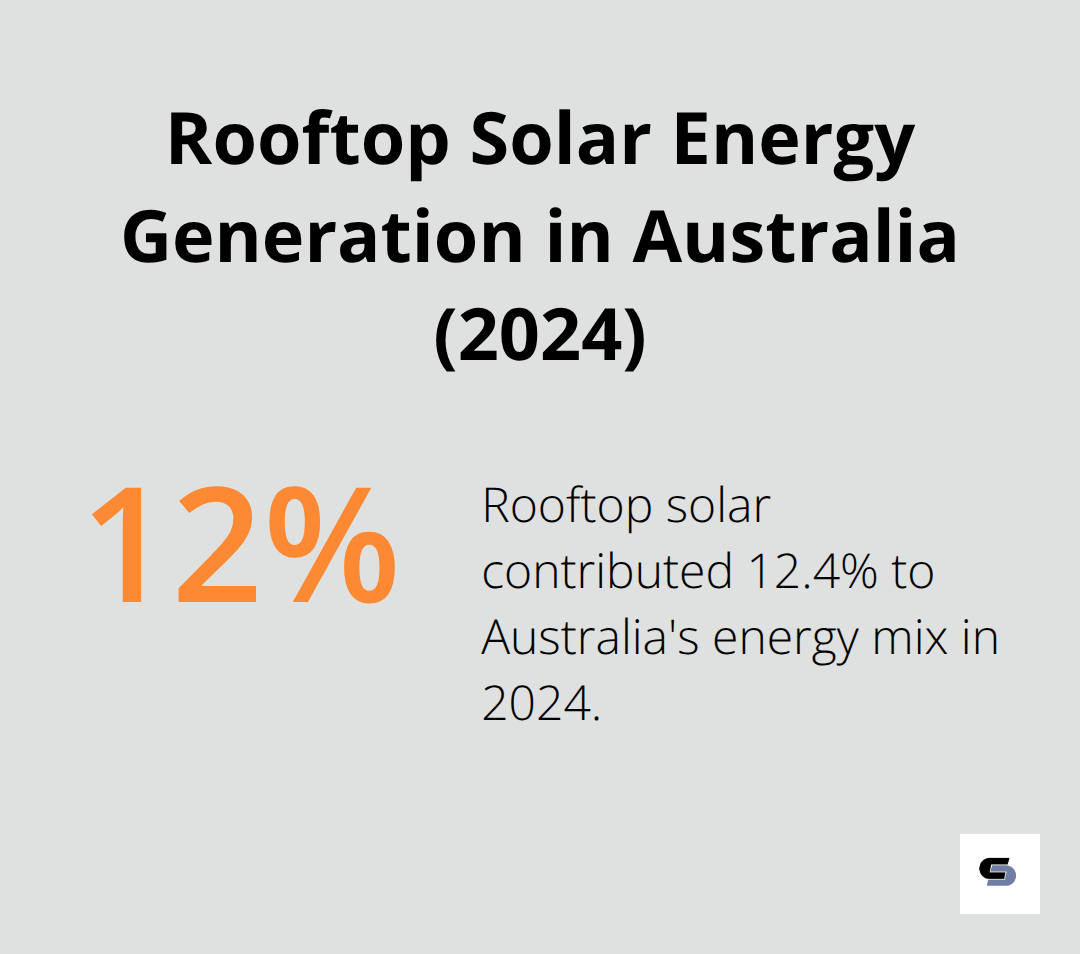
Popular Design Styles
Industrial design trends featuring exposed pipes and matte black fixtures have become popular in bathroom renovations throughout Melbourne. Wet rooms gain popularity for their ability to create an open feel and improve accessibility (particularly in small bathrooms). Locally sourced Australian-made fixtures are increasingly favoured for their quality and unique designs that reflect Melbourne’s aesthetic. Eclectic elements like repurposed vintage dressers as sinks align with Melbourne’s eco-conscious mindset.
The success of these material and style choices depends heavily on proper execution during the renovation process itself.
What Happens During Your Renovation
Preparation starts 2-3 weeks before demolition with fixture removal, utility disconnections, and site protection. Professional teams disconnect electricity, gas, and water at main valves to prevent accidents during demolition. Teams remove cabinets, fixtures, and floors systematically to salvage reusable materials and minimise waste disposal costs. Dust containment systems and plastic sheets protect adjacent rooms from debris, while temporary lights and ventilation maintain safe work conditions throughout the process.
Demolition Phase Timeline
Bathroom demolition typically takes 2-3 days for standard layouts, while kitchen demolition requires 3-5 days (depending on structural modifications). Wall removal, floor extraction, and plumbing relocation happen sequentially to prevent utility damage. Melbourne regulations require licensed professionals for electrical and plumbing disconnections, which adds complexity to schedules but prevents costly mistakes. Asbestos tests in homes built before 1990 extend demolition timelines but remain legally mandatory.
Construction and Installation Sequence
Kitchen renovations follow a strict sequence: rough plumbing and electrical first, then drywall and floors, followed by cabinetry and benchtop installation. Bathroom projects start with waterproofing and tiles before fixture installation to prevent moisture damage. Mid-range kitchen renovations average 4-6 weeks total, while bathroom makeovers typically complete within 6-8 weeks. Permit approvals can extend timelines by 2-4 weeks, which makes early submission necessary for on-schedule completion.
Daily Life Management
Set up temporary kitchen facilities in another room with portable appliances, microwave, and mini-refrigerator to maintain meal routines. Bathroom renovations require alternative wash arrangements – gym memberships or neighbour agreements work better than portable facilities for extended projects. Noise restrictions in Melbourne limit construction hours to 7 am-6 pm weekdays and 8 am-6 pm weekends, so plan daily schedules accordingly. Professional contractors coordinate deliveries and inspections to minimise disruption while they maintain project momentum.
Final Thoughts
Professional bathroom and kitchen renovations Melbourne homeowners select deliver measurable returns that extend far beyond aesthetics. Kitchen remodels yield up to 75% return on investment, while bathroom renovations provide 60-70% ROI according to industry data. These improvements transform daily routines while they increase property values significantly.
Quality craftsmanship prevents the costly mistakes that plague 35% of DIY projects (where homeowners later hire professionals to fix errors). Professional teams handle permits, regulations, and complex installations that amateur renovators often mismanage. Proper waterproofing, electrical work, and structural modifications require expertise that protects your investment long-term.
Melbourne’s renovation market continues to grow, with projected spending that reaches $51 billion by 2026. Smart homeowners who invest in professional renovations now position themselves ahead of this trend while they enjoy immediate lifestyle benefits. Cameron Construction brings decades of Melbourne renovation experience to every project with expert teams that deliver quality craftsmanship, transparent communication, and detailed quotes.
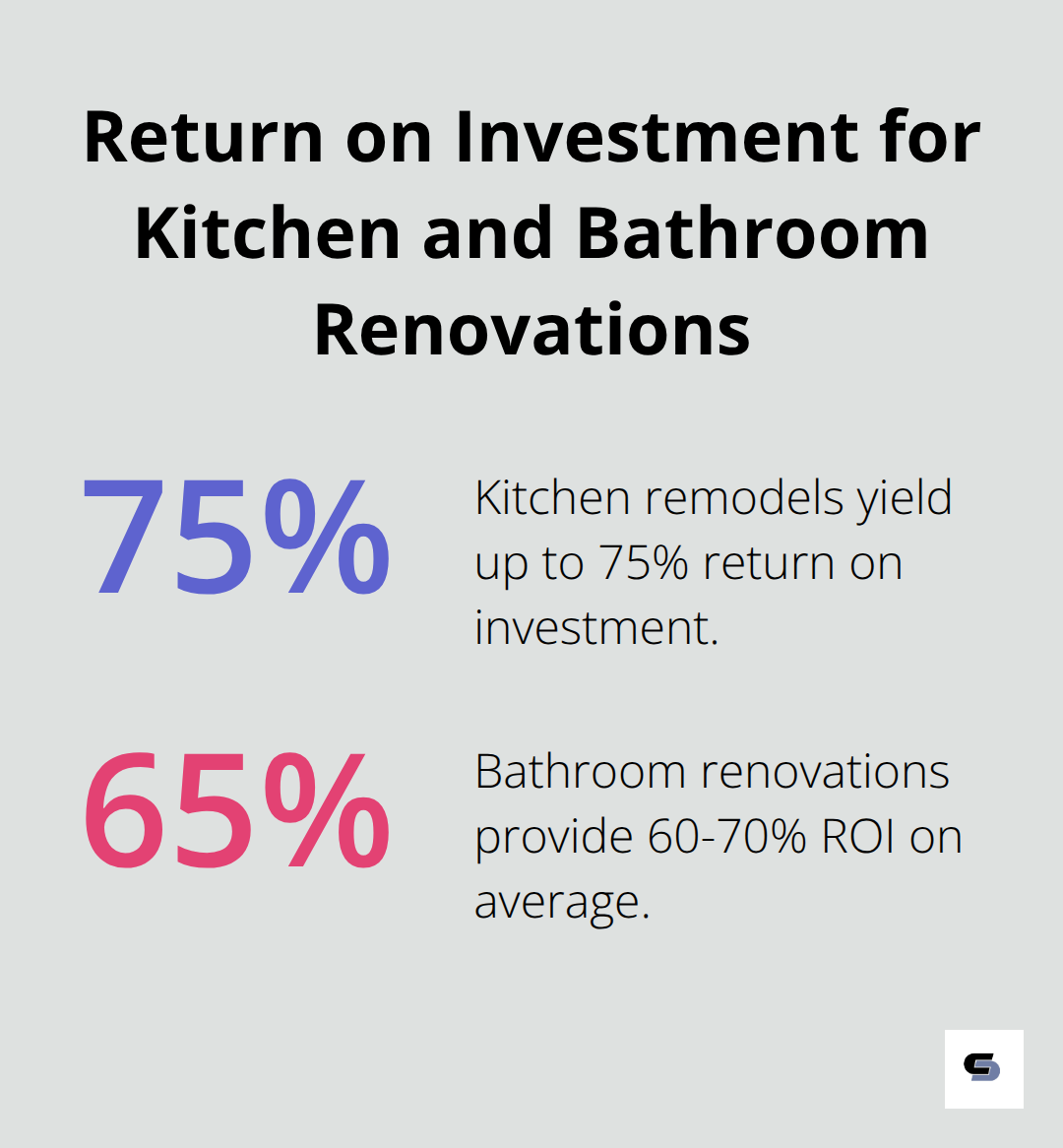

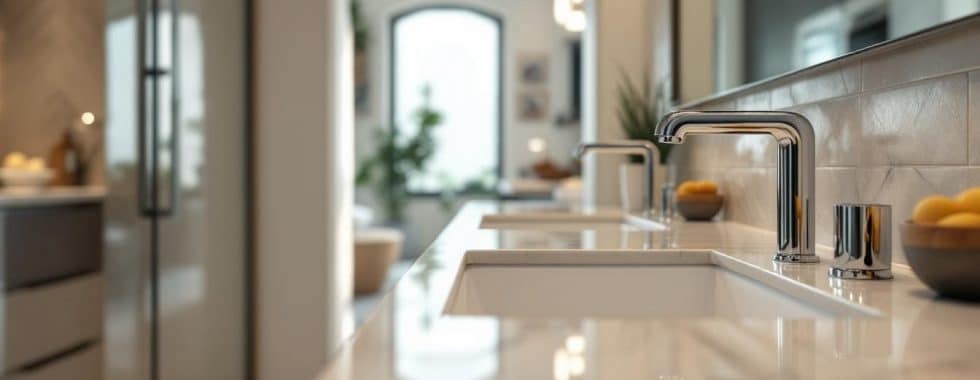
![Second Storey Additions For Growing Families [Guide]](https://www.cameronconstruction.com.au/wp-content/uploads/emplibot/second-storey-additions-hero-1772259809-150x150.webp)

